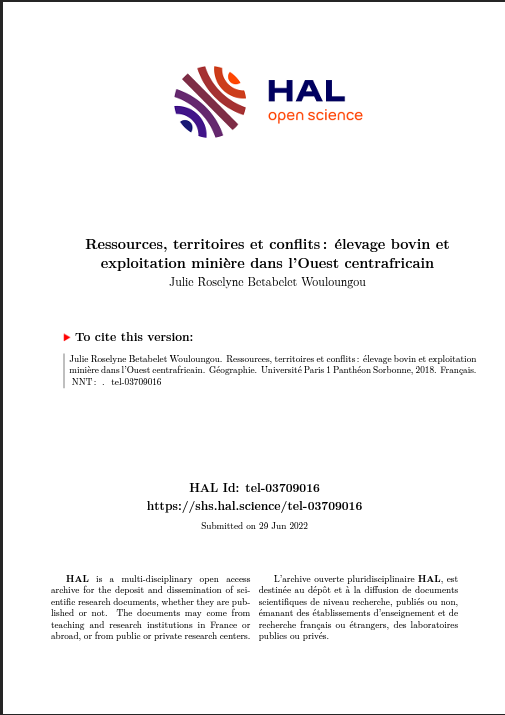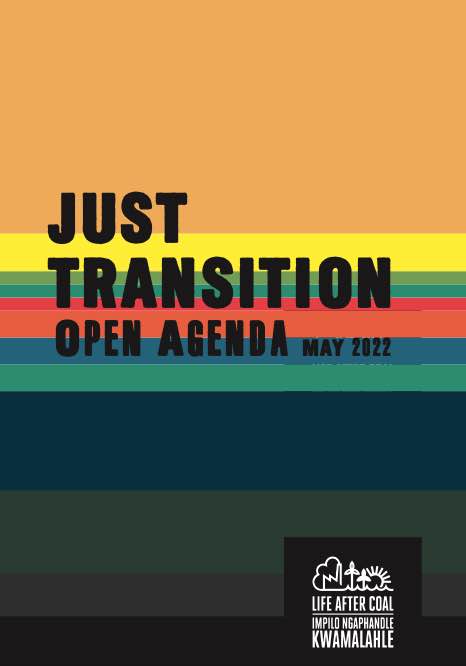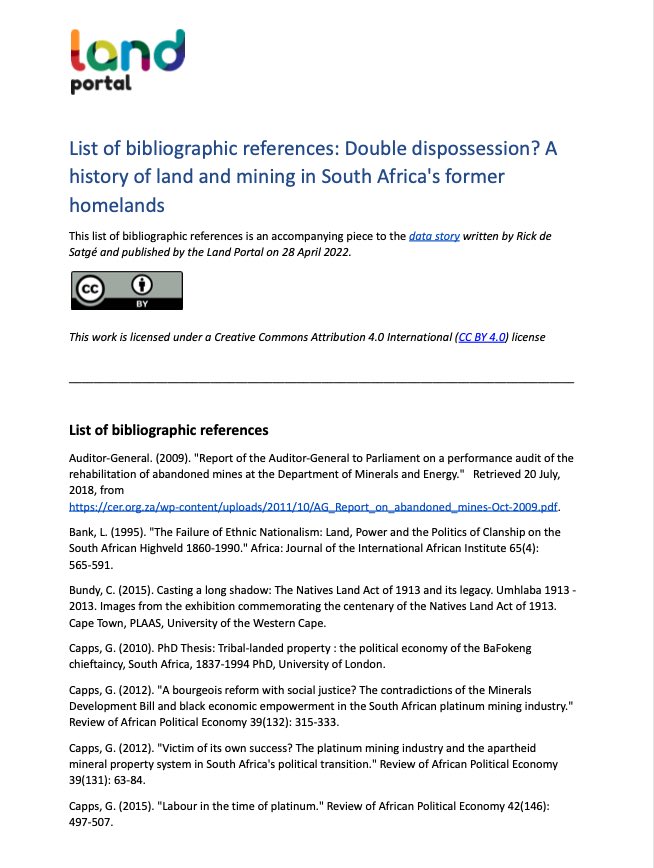Ressources, territoires et conflits : élevage bovin et exploitation minière dans l'Ouest centrafricain
La République centrafricaine traverse depuis plusieurs décennies des crises socio-politiques et militaires. Celles-ci ont atteint leur apogée en 2013 autour des affrontements entre la Séléka, une rébellion du nord et les Anti-Balaka, un regroupement de milices locales. L’État n’a plus de contrôle sur l’ensemble de son territoire morcelé et tenu par des groupes armés. À partir du cas de l’Ouest centrafricain, cette thèse montre que les conflits armés ont des répercussions profondes sur les rapports des populations aux ressources et aux territoires.






